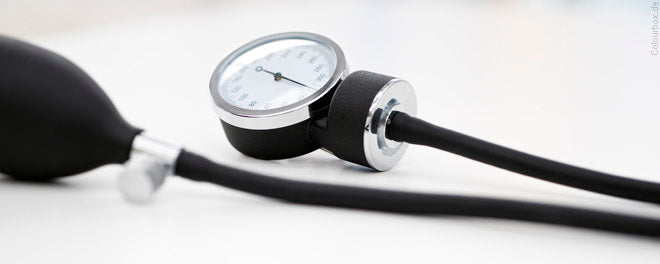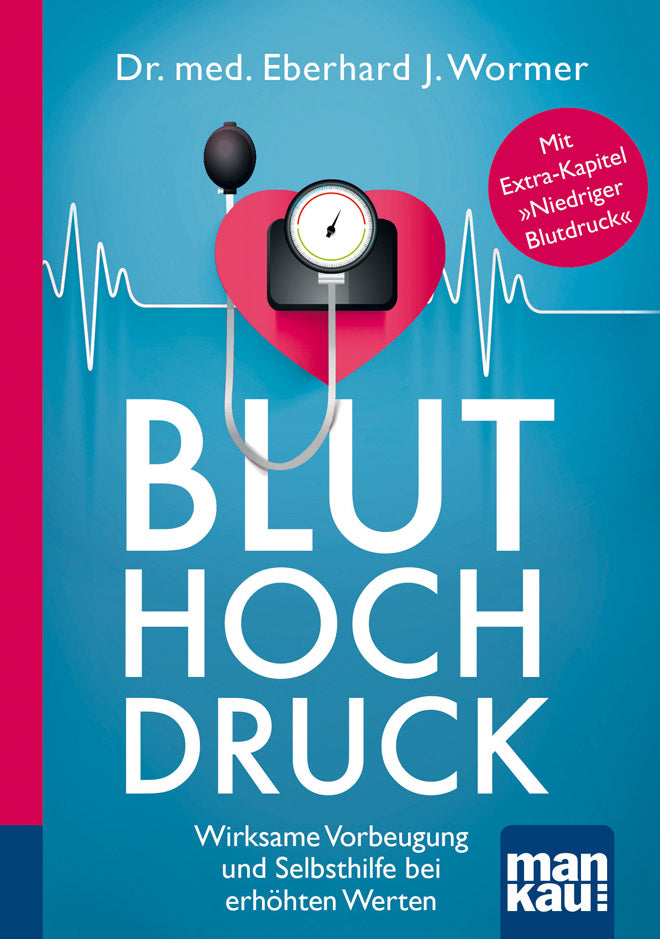
Health risk: high blood pressure
Health risk: high blood pressure
The compact guide by Dr. Eberhard J. Wormer provides tips for effective prevention and self-help in the case of elevated values
High blood pressure, medically known as hypertension, is considered a key risk factor for heart, circulatory and vascular diseases. In addition to regular blood pressure measurements, a healthy lifestyle is the most important thing that helps prevent the harmful consequences.
Stress and overexertion
The magazine "Ärzteblatt" writes in its December 2016 issue that "high blood pressure is a major risk factor for cardiovascular and kidney diseases." Nevertheless, the potential for prevention is high and effective treatment options exist. For health expert and guidebook author Dr. Eberhard J. Wormer, "it is today's lifestyle in particular that throws us physically off track." Stress, constant strain, an unbalanced diet and hectic overexertion, even in our free time - this way of life takes its toll and leads to an increasing overexertion of the vascular system.
His new compact guide "High blood pressure" presents a number of simple ways to take responsibility for your health. Because once it is detected, high blood pressure can be treated well. If you measure your blood pressure regularly, you can quickly see whether it is too high - and then consult a doctor if necessary. But those affected can also do a lot to take the fear out of the disease without the help of a doctor or medication.
What does hypertension mean?
The World Health Organization (WHO) estimates that high blood pressure has now become the greatest global health threat and that high blood pressure is responsible for around 9.4 million deaths each year. In addition, high blood pressure is involved in more than half of all strokes and is responsible for almost half of coronary heart disease.
Blood pressure depends on blood volume, vascular resistance, and the force with which the heart pumps blood into the vascular system. According to WHO guidelines, the ideal blood pressure for adults is 120/80 mmHg (= millimeters of mercury). High blood pressure (hypertension, hypertension or arterial hypertension) is present when values above 140/90 mmHg are measured multiple times at different times. The first value indicates the so-called systolic blood pressure - also called the "upper value." This is the highest pressure reached in the main artery (aorta) during the pumping process. The second or "lower" value indicates the so-called diastolic blood pressure - this is the lowest pressure in the arteries while the heart is filling up with blood again after the pumping process. The upper value only represents the pressure peaks of the pumping process, while the lower value is the constant pressure.
What can be done about it?
Regular and competent blood pressure checks are necessary in order to confirm the suspicion of high blood pressure and then to help prevent unwanted consequences through effective therapy. Once pathological high blood pressure has been identified and confirmed by a doctor, it can in principle be treated well by a doctor. The most important risk factors for high blood pressure are lack of exercise, excess weight, an unhealthy and unbalanced diet, stress, smoking and excessive alcohol consumption.
The most important and effective way to combat high blood pressure is therefore a healthy lifestyle. "More relaxation in everyday life, a healthy diet and sufficient exercise are small milestones on the way to better health and quality of life," recommends Dr. Wormer. If you manage to avoid habits that are harmful to your health and integrate health-promoting measures into your daily life, there is a good chance that you can reduce the dose of blood pressure-lowering medication or do without it altogether. Reducing or avoiding stress in everyday life is the key to defusing most of the other risk factors that promote high blood pressure. That is why stress management - the psychological aspect of stress regulation - has the highest priority or is at least equal to the implementation of other therapy goals.
Book tip:
Dr. med. Eberhard J. Wormer: Diabetes. High blood pressure. Compact guide. Effective prevention and self-help for elevated values. With extra chapter "Low blood pressure". Mankau Verlag, 1st edition April 2017, paperback, 11.5 x 16.5cm, color, 126 pages, 8.99 euros (D) / 9.20 euros (A). ISBN 978-3-86374-380-2.
Link recommendations:
More information on the guide "High blood pressure"
To the reading sample in PDF format
More about Dr. Eberhard J. Wormer
To the Internet forum with Dr. med. Eberhard J. Wormer







